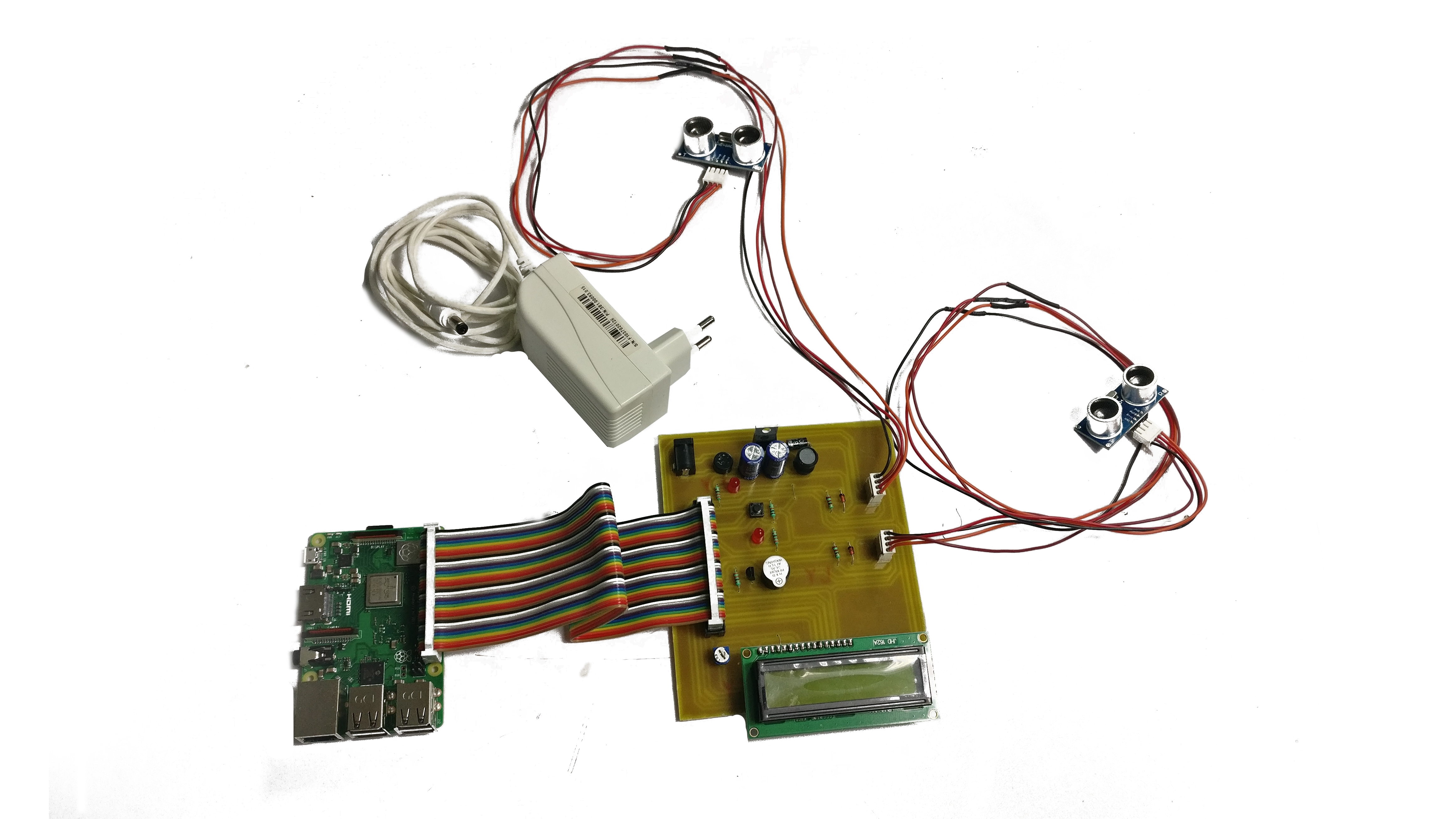Imagine this: you're sitting in your living room, sipping on your favorite coffee, and suddenly you realize how cool it would be to remotely monitor your home’s IoT devices using a Raspberry Pi. But here's the kicker—you want to do it securely, efficiently, and without breaking the bank. Well, my friend, you're in the right place! Securely connect remote IoT P2P Raspberry Pi download free is no longer a dream but a reality.
Connecting IoT devices to your Raspberry Pi in a secure manner is more important now than ever before. With cyber threats lurking around every corner, ensuring your setup is watertight is crucial. This guide will walk you through everything you need to know to set up a secure connection between your remote IoT devices and your Raspberry Pi, all while keeping it free and easy.
Whether you're a tech enthusiast, a hobbyist, or just someone looking to enhance their home automation setup, this article has got you covered. We'll dive deep into the nitty-gritty of secure connections, peer-to-peer (P2P) networking, and how to download the necessary software for free. So, buckle up and let's get started!
Read also:Prince Charles And Camilla Hint At Meghan Markles Due Date Before Royal Tour
What Exactly is Securely Connect Remote IoT P2P Raspberry Pi?
Let’s break it down for you. Securely connecting remote IoT devices to a Raspberry Pi involves creating a secure communication channel between your IoT devices and your Pi. The "P2P" part means peer-to-peer, which allows direct communication between devices without the need for a central server. This not only enhances security but also reduces latency and bandwidth usage.
When we talk about securely connect remote IoT P2P Raspberry Pi download free, we're referring to the ability to set up this secure connection without spending a dime. There are plenty of free tools and resources available that make this possible, and we'll explore them in detail later on.
Why is Security So Important in IoT?
In today’s world, IoT devices are everywhere—from smart thermostats to security cameras. While these devices make our lives easier, they also pose significant security risks if not properly secured. Hackers can exploit vulnerabilities in these devices to gain unauthorized access to your network, steal sensitive data, or even take control of your devices.
By securely connecting your IoT devices to your Raspberry Pi, you're adding an extra layer of protection. This ensures that only authorized devices can communicate with your Pi, keeping your network safe from prying eyes.
Benefits of Using Raspberry Pi for IoT
Raspberry Pi has become a go-to choice for many IoT enthusiasts due to its versatility, affordability, and ease of use. Here are some of the benefits of using Raspberry Pi for your IoT projects:
- Cost-Effective: Raspberry Pi is incredibly affordable, making it accessible to hobbyists and professionals alike.
- Open-Source: With a vast community of developers, you'll find plenty of free resources and tutorials to help you get started.
- Customizable: Raspberry Pi can be customized to suit your specific needs, whether you're building a home automation system or a weather station.
- Energy-Efficient: Raspberry Pi consumes very little power, making it ideal for long-term projects.
How to Securely Connect Remote IoT Devices to Raspberry Pi
Now that you understand the importance of security in IoT, let’s dive into the steps you need to take to securely connect your remote IoT devices to your Raspberry Pi. Here's a step-by-step guide:
Read also:Prince Harry William And Charles Unite For A Royal Cause
Step 1: Set Up Your Raspberry Pi
Before you can connect your IoT devices, you need to set up your Raspberry Pi. This involves installing the operating system, configuring Wi-Fi, and setting up SSH for remote access.
Step 2: Install Necessary Software
Once your Raspberry Pi is up and running, you'll need to install the necessary software to facilitate secure communication. Some popular options include:
- MQTT: A lightweight protocol ideal for IoT communication.
- OpenVPN: For creating a secure tunnel between your devices and your Pi.
- WireGuard: A modern VPN solution that offers excellent performance and security.
Step 3: Configure Firewall Settings
Firewall settings play a crucial role in securing your Raspberry Pi. Make sure to configure your firewall to only allow traffic from trusted sources. This will help prevent unauthorized access to your network.
Peer-to-Peer (P2P) Networking Explained
Peer-to-peer (P2P) networking allows devices to communicate directly with each other without the need for a central server. This not only enhances security but also improves performance by reducing latency and bandwidth usage.
Setting up a P2P network for your IoT devices involves configuring your devices to communicate directly with your Raspberry Pi. This can be achieved using tools like ZeroTier or Weaved, which offer free plans for personal use.
Free Tools and Resources for IoT Projects
One of the best things about the IoT community is the abundance of free tools and resources available. Here are some of the top tools you can use to securely connect your IoT devices to your Raspberry Pi:
- MQTT: A lightweight protocol perfect for IoT communication.
- OpenVPN: A free and open-source VPN solution.
- WireGuard: A modern VPN that offers excellent performance and security.
- ZeroTier: A free P2P networking solution.
- Weaved: A cloud-based solution for remote access to your devices.
Best Practices for Securing Your IoT Devices
While setting up a secure connection is important, it's equally important to follow best practices to ensure the long-term security of your IoT devices. Here are some tips:
- Change Default Passwords: Always change the default passwords on your devices to something strong and unique.
- Keep Firmware Up-to-Date: Regularly update the firmware on your devices to patch any security vulnerabilities.
- Use Strong Encryption: Ensure that all communication between your devices and your Pi is encrypted using strong protocols like TLS.
- Limit Network Access: Only allow trusted devices to access your network.
Common Challenges and Solutions
Setting up a secure IoT network can be challenging, especially for beginners. Here are some common challenges you might face and how to overcome them:
Challenge 1: Limited Bandwidth
Solution: Use compression techniques to reduce the amount of data transmitted between devices. This will help conserve bandwidth and improve performance.
Challenge 2: Device Compatibility
Solution: Ensure that all your devices are compatible with the protocols you're using. This might involve installing additional software or firmware updates.
Challenge 3: Security Threats
Solution: Regularly monitor your network for suspicious activity and take immediate action if any threats are detected.
Case Studies and Real-World Examples
To give you a better understanding of how securely connect remote IoT P2P Raspberry Pi works in practice, let's look at a few real-world examples:
Example 1: Home Automation System
John, a tech enthusiast, used Raspberry Pi to create a home automation system that allows him to remotely control his lights, thermostat, and security cameras. By using MQTT and OpenVPN, he was able to securely connect all his devices and control them from anywhere in the world.
Example 2: Weather Station
Sarah, an environmental scientist, set up a weather station using Raspberry Pi to collect data on temperature, humidity, and wind speed. She used WireGuard to create a secure connection between her devices and her Pi, ensuring that her data remained safe and secure.
Conclusion
In conclusion, securely connect remote IoT P2P Raspberry Pi download free is not only possible but also highly beneficial. By following the steps outlined in this guide, you can set up a secure and efficient IoT network that meets your needs.
Remember to always prioritize security and follow best practices to ensure the long-term safety of your devices. And don't forget to share your experiences and tips in the comments section below. Who knows? You might just inspire someone else to embark on their own IoT journey!
So, what are you waiting for? Get out there and start building your secure IoT network today!
Table of Contents
- Securely Connect Remote IoT P2P Raspberry Pi Download Free: The Ultimate Guide
- What Exactly is Securely Connect Remote IoT P2P Raspberry Pi?
- Why is Security So Important in IoT?
- Benefits of Using Raspberry Pi for IoT
- How to Securely Connect Remote IoT Devices to Raspberry Pi
- Peer-to-Peer (P2P) Networking Explained
- Free Tools and Resources for IoT Projects
- Best Practices for Securing Your IoT Devices
- Common Challenges and Solutions
- Case Studies and Real-World Examples


